Apples
Here’s the thing about apples, they already last about a week or two when kept at room temperature. When kept at room temperature, the enzymes within become far more active, that’s why they’re so nutritional. Keep in mind that if you place apples next to other fruits, they can ripen quicker as apples give off a certain gas. If you were given a holiday gift baskets filled with fruits then its best you don’t store it in the fridge!

Apples
Avocados
When you have avocados that are not ripe, the refrigerator is not the place for them! If they wind up in the fridge somehow, they will only ripen slower, like snail slow. Instead, they need to remain on a cool and dry surface, like the counter.

Avocados
Bananas
Bananas retain nutrients much better when they are out of the fridge. This is because the cold temperatures will slow down the ripening process, plus the moisture and darkness of the refrigerator will only cause them to rot. It’s best to keep them on the kitchen counter!

Bananas
Basil
Keep your basil out of the fridge, people! Instead, place it in a cup of freshwater or if you want to store it for a longer period of time – first blanch it then freeze it. Cooky but it works.

Basil
Bread
Nothing, absolutely nothing, will dry out bread faster than leaving it in the fridge. The coldness tends to turn the bread tough, stale, and almost tasteless. The only time bread belongs in the fridge, is when it’s in the form of a sandwich!

Bread
Carrot
What’s up, Doc? Ohhhh, don’t refrigerate carrots because they’ll only get rotted and water filled within just a few days? Yeah, good tip! Carrots instead need to be stored away from sunglight, a place with low moisture is ideal.

Carrot
Cereal
You don’t need to store cereal in the refrigerator to keep it fresh! The moisture and the low temperature in the fridge can cause the cereal to lose its texture and get less crunchy. Something no one wants.
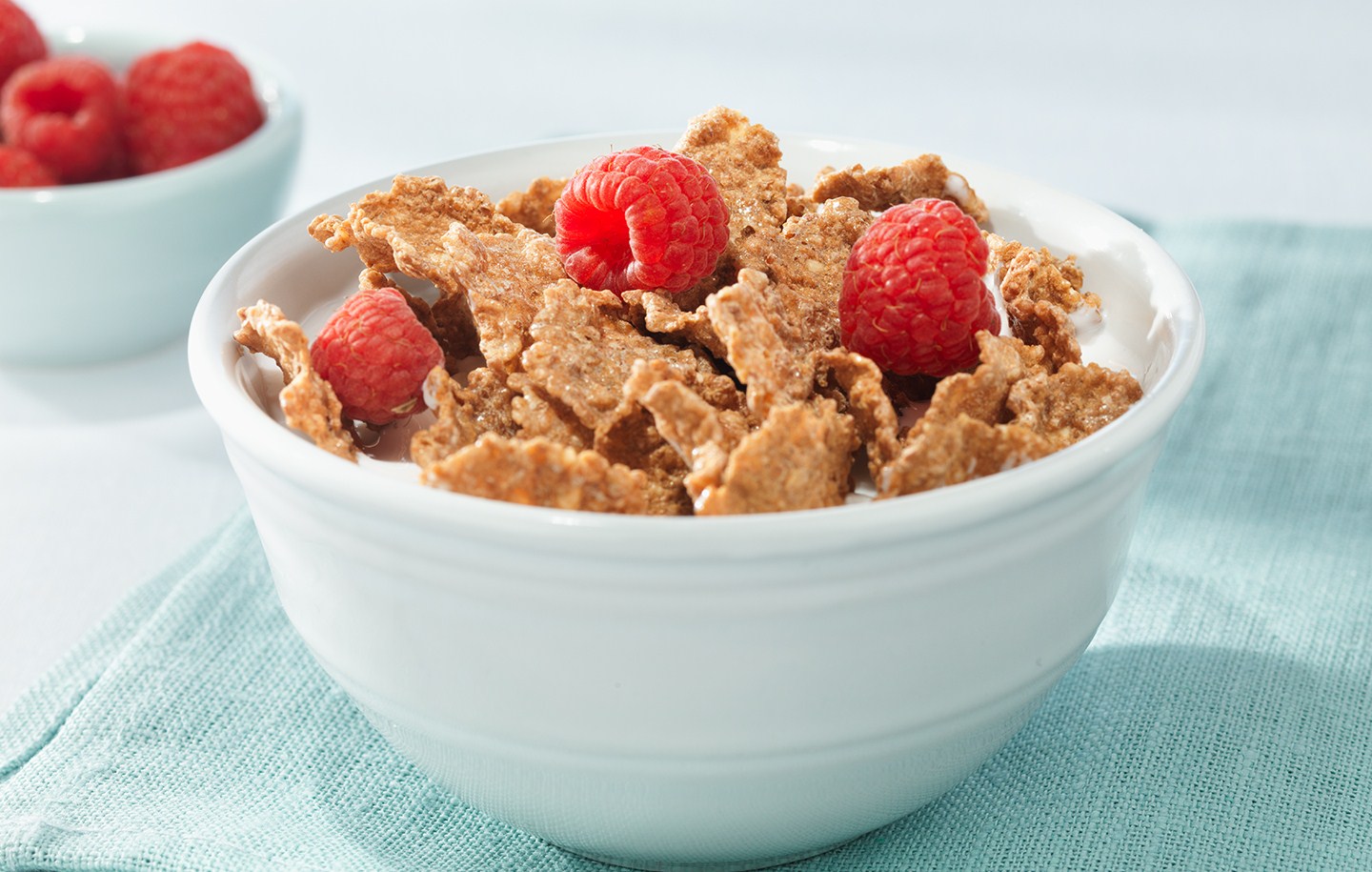
Cereal
Chocolate
I’m going to let you in on a secret…I’m a total #chocoholic, as is almost everyone else in the entire world. Like most, I’ve thrown my chocolate into the fridge to keep it from melting and to keep it more “solid”. Here’s the thing though, it loses its taste when you do this! (Insert shocked and mortified emoji right here!) Only put chocolate into the refrigerator if it turned into liquid due to some crazy heatwave but no longer than a couple hours.

Chocolate
Citrus Fruits
All kinds of citrus fruits need natural, room temperatures to help ripen. If they are instead placed into the refrigerator then this process gets seriously ruined and the citrus fruits will only lose their flavoring.

Citrus Fruits
Coffee
MMM, coffee. When you’re a #chocoholic then chances are, you’re also a coffee addict. Like Gilmore Girls level addicted (and that’s saying a lot). If you have ground coffee or coffee beans then you need to store them in a dry, cool, and dark place in order to preserve the freshness and flavor. If you put the coffee in the fridge, then it better be in an airtight container.

Coffee
Cucumber
Cucumbers are best enjoyed when left at room temperature. The fridge is the farthest place when you should leave the veggie. If you do put cucumbers in the fridge, you will notice that the skin gets damaged. This is because of the cool temperature, it quickens the decay of the cucumber’s skin. Therefore, only store in a dry, cool place at room temperature.

Cucumber
Egg
Most people don’t give a second thought to putting their eggs in the fridge, its common. However a study was recently published that stated it makes no difference if you leave eggs in the fridge or not.

Egg
Flour
It actually makes no difference where you store flour, as long as it is kept in an airtight container and that the container remains dry.
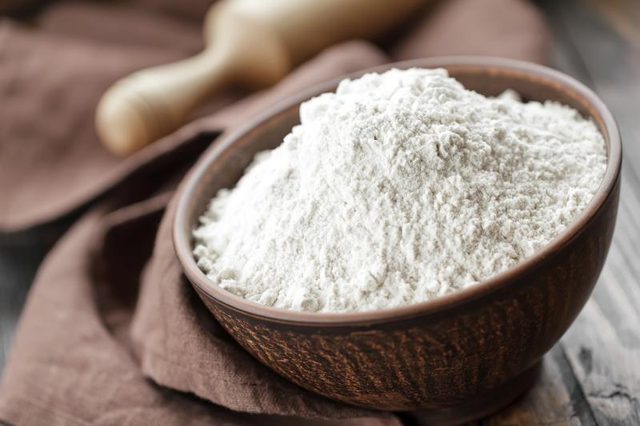
Flour
Fruits Like Apricots, Kiwi, Peaches, Plums And Mangoes
When you put fruits such as mangoes, plums, kiwi, apricots, and peaches in the fridge then you slowing down the ripening process so the will lose their flavor and nutrients quicker. You instead should store them in a cool, dry place like the counter.
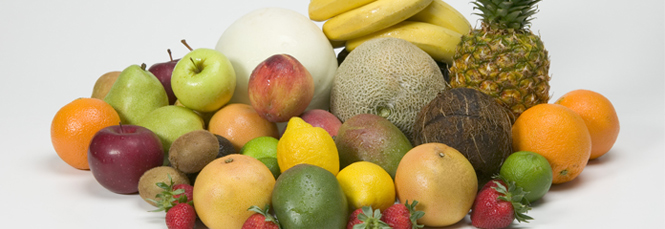
Fruits Like Apricots, Kiwi, Peaches, Plums And Mangoes
Garlic
Surely you get the point by now? Don’t leave garlic in the fridge, it will only cause it to get moldy, rubbery, and it’ll sprout. The catch is, if you do leave garlic in the fridge, it will look totally normal, until you cut it open. That’s something no one wants to smell or see.

Garlic
Honey
This one might seem like a no-brainer but there’s a reason it makes the list. Honey is a naturally preserved food so if you store it in the fridge, you are in fact speeding up its natural sugar crystallization process. This will only leave you with dough-like honey and that’s something no one wants.

Honey
Hot Sauce & Tobasco
When it comes to any kind of hot sauce and Tabasco, its important to remember that they both possess a rather long shelf life. To be precise, three years for hot sauce and five years for Tabasco. When it comes to hot sauce, just make sure that it has a vinegar base and does not contain vegetables or fruits – while it may change color, it does not mean its gone bad. When it comes to Tabasco, be sure to store it away from direct sunlight and keep it in a cool place. Even after you’ve opened the Tobasco, it does not need to be refrigerated.

Hot Sauce & Tobasco
Jam
Due to the fact that jam is made with loads of preservatives, boarding on overkill, you shouldn’t keep it in the fridge. Even if you have opened the jar, don’t put it in the fridge! While you might get some water inside the jar, this won’t ruin the taste or cause it to spoil. Additionally (and this is ~super~ important), when you are taking out jam, make sure you aren’t mixing it up with any other foods; when you criss-cross jam with other foods, it can cause the taste to go funny!
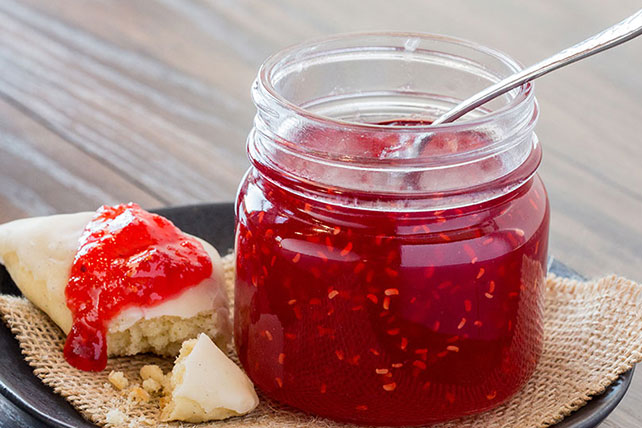
Jam
Ketchup
Ketchup makers add enough preservatives inside to keep the freshness and quality even after the bottle has been opened. There is NO need to refrigerate ketchup at all.
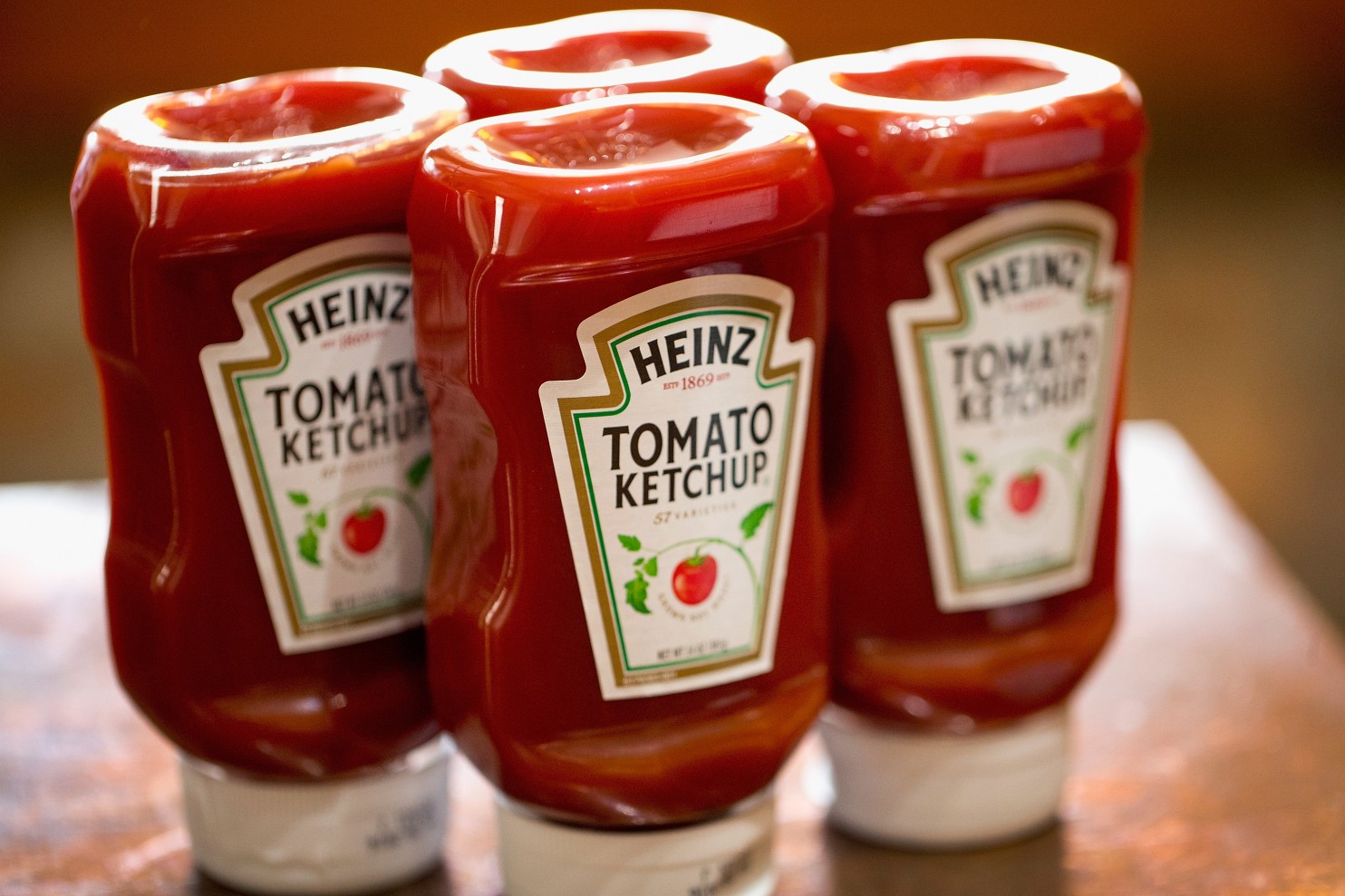
Ketchup
Melons
There is no need to keep melons in the fridge! When kept at room temperature, melons will keep their natural antioxidant levels “level”, you know, the same. If you slice up melons, then you should store them in the refrigerator but they need to be covered with foil or plastic wrap.
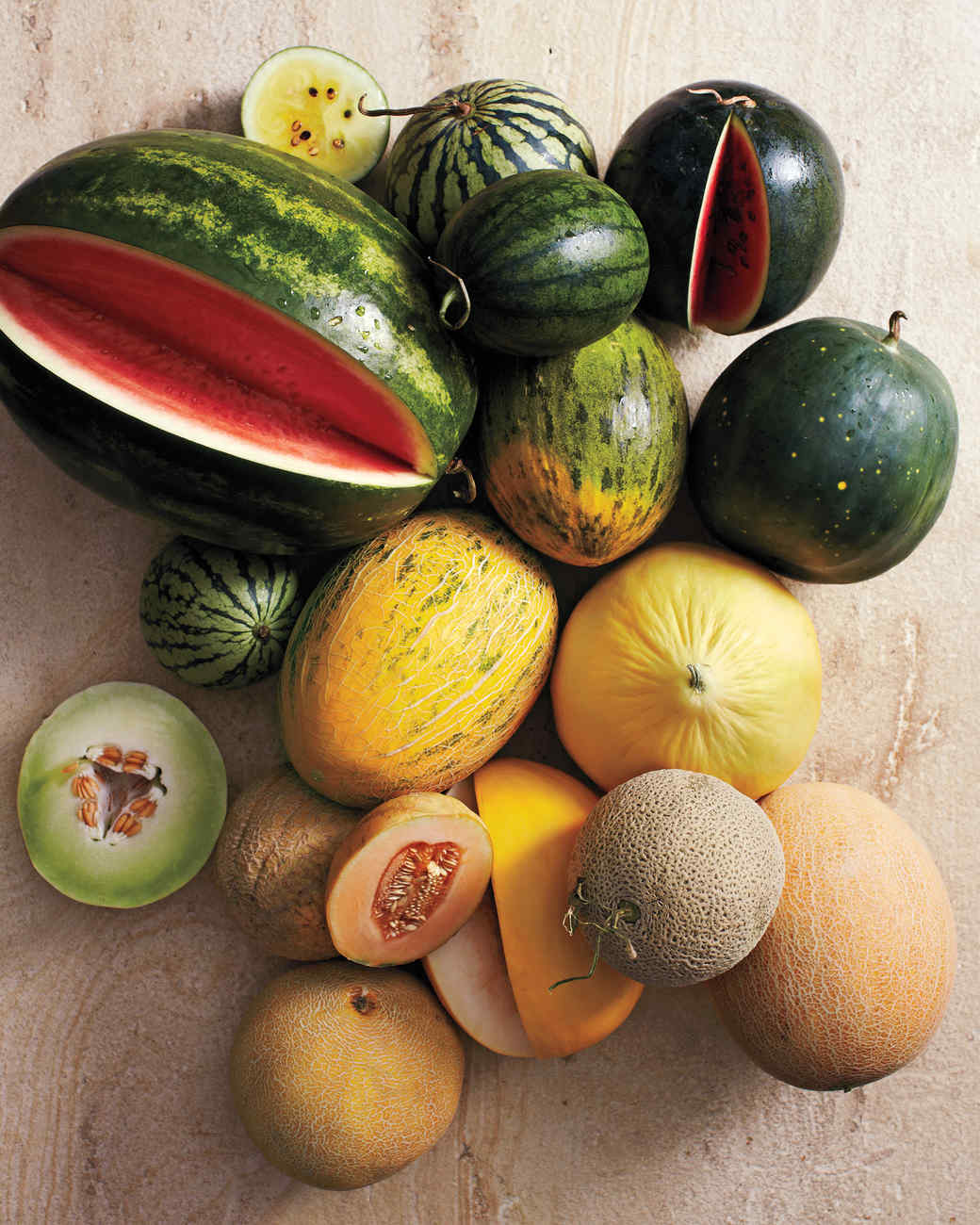
Melons
Olive Oil
Maybe you never give a second thought of where you store olive oil but the refrigerator isn’t the place for it. Store it in a dark, cool place other the coldness of the fridge will only turn the oil hard and condensed and you’ll basically have butter.

Olive Oil
Onions
Just like garlic, if you leave onions in the fridge, they will only turn moldy! If you have unpeeled onions, leave them in a dark and dry area because what they need to stay fresh for long periods of time is air. Not cold refrigerator air. If you happen to have a peeled onion, then put it in the fridge in a container that is covered.

Onions
Pears
Here’s the thing you need to remember about pears, they don’t ripen on the tree. Therefore, if you purchased them at room temperature then they will ripen slowly, this is how you get that perfect pear taste. If you buy pears that are not ripe, do NOT refrigerate them. The cold will only delay the ripening process and keeps the pears from remaining fresh. Once the pears have ripened, you can put them in the fridge to make them last longer.

Pears
Pepper
It’s a total myth that if you put peppers in the refrigerator, it preserves them. When placed in the fridge, peppers become more dull, which is why you should store them in a cool and dry place. Same goes for chili peppers.
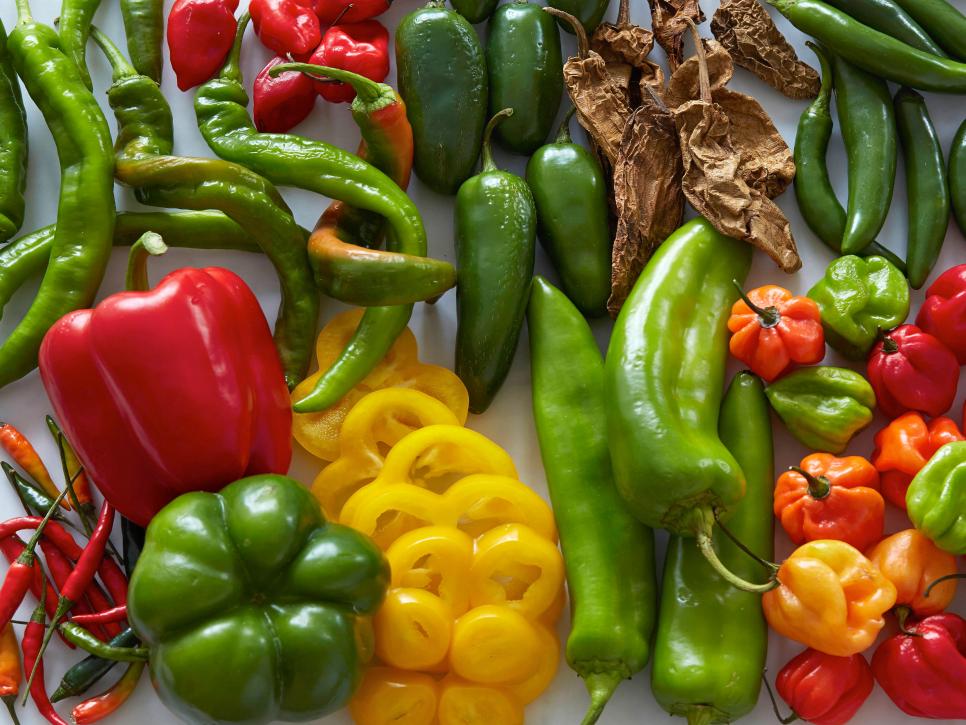
Pepper
Pickles
Yup! You can leave pickles OUT of the fridge. They are loaded up with preservatives so even if they stay out for three years, makes no difference. There’s no smell or spoiling so save yourself the fridge space and shelve the pickles.

Pickles
Potatoes
Potatoes need to be kept in a cool, dry and dark space at all times. The cold temperatures of the refrigerator will only cause the starch within to turn into sugar faster. Be sure to take the potatoes out of the bag you bought them in when you get home!

Potatoes
Salad Dressings
More often than not, people put vinaigrette or salad dressings in the refrigerator but research has shown that there is actually no benefit to doing this. The two main components of a salad dressing is vinegar and oil – neither of which requires refrigeration. However if you create your own, you probably use fruit juice, nut oil, or garlic, and those ingredients do require refrigeration.
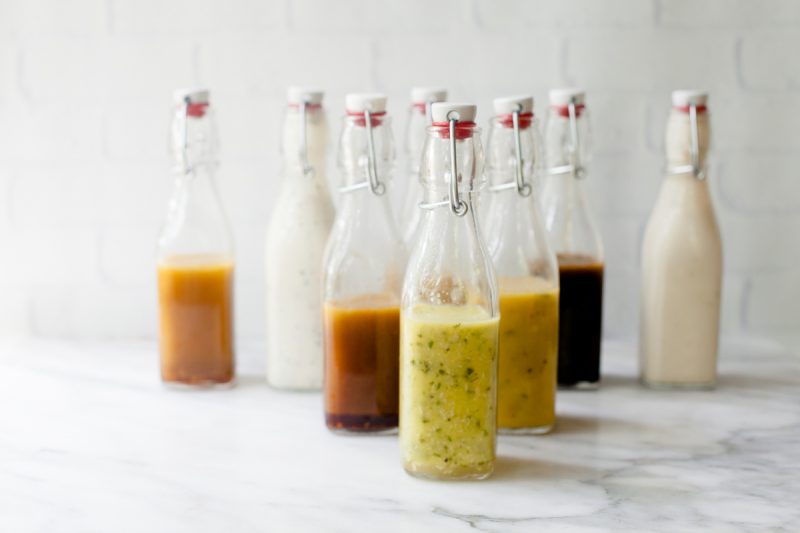
Salad Dressings
Salad
If you have an oil or vinegar salad, it is totally capable of withstanding a long period of time not refrigerated. I know, seems crazy. However if you have a salad with a yogurt or mayo base, then you do need to refrigerate.

Salad
Tomatoes
When you put tomatoes in the refrigerator, you are only helping them lose flavor quicker, sour the texture, and slow down the ripening process. Therefore, keep the tomatoes on the counter, in a bowl!

Tomatoes
Tuna
As long as canned tuna is sealed, there is no need to put it inside of the refrigerator! It can stay at room temperature without going bad, this is 99% due to the fact that canned tuna has tons of preservatives inside of it.

Tuna
Sweet Melon
No-one really wants to eat watermelon or any other melon for that matter when it’s not chilled. But before you put that melon in the fridge, think again. Research proves that it will lower the amount of anti-oxidants in the sealed melon. Rather slice it up and then place it in the fridge just enough time before you choose to serve it.
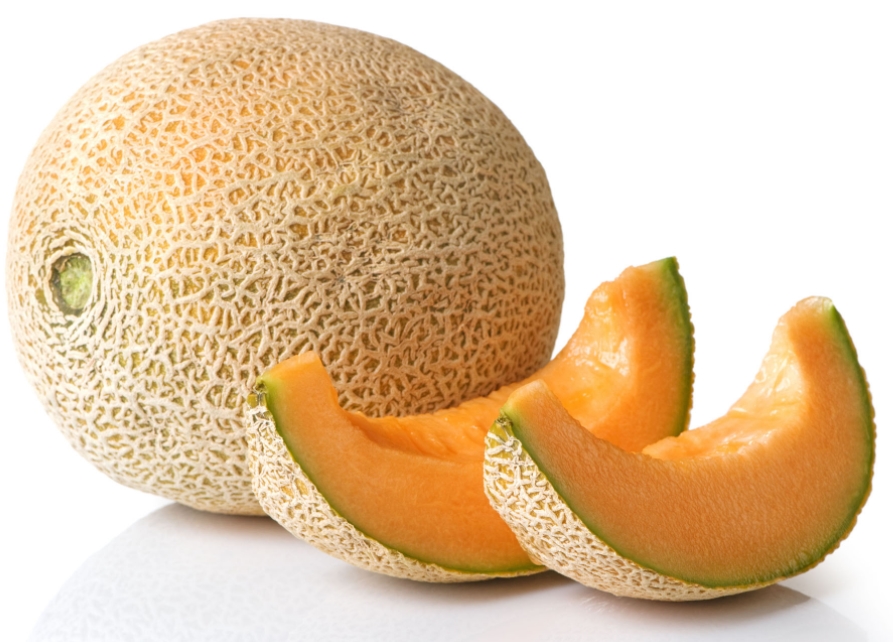
Sweet Melon
Pumpkin
How did pumpkins get connected to the horror-themed holiday of Halloween? Perhaps it’s because this large vegetable thrives best in dark, cool, dry places like, let’s say… your basement?

Pumpkin
Peanut Butter
How annoying is it trying to stab a knife into a jar of rock-hard peanut butter? The answer is – pretty darn annoying! Want to keep that peanut butter soft, smooth and creamy? Just keep it out of the fridge. Voila!
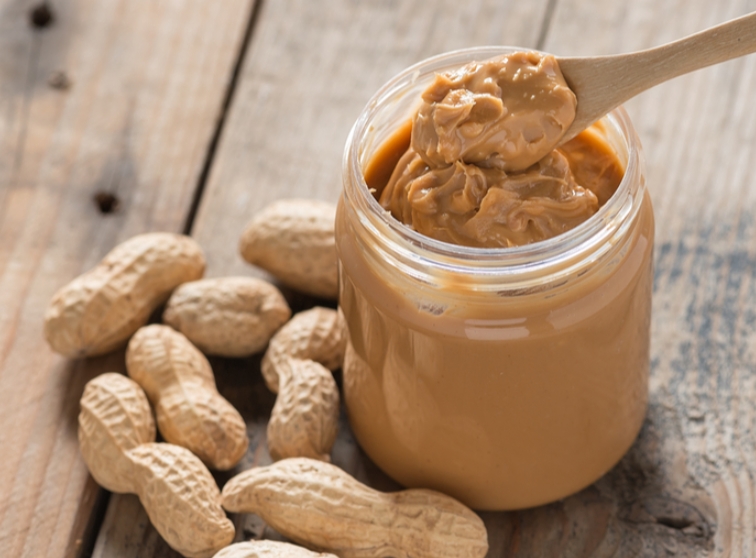
Peanut Butter
Spices
It has become a habit to put any food sorts that are open in the fridge. Just because we do it doesn’t mean it’s right. All spices should be kept outside of the fridge so that they don’t absorb moisture and become foul. Spices can be kept in the pantry or anywhere dry for months at a time as long as they are in a sealed container.

Spices
Mustard
Mustard is similar to ketchup in that it can last longer outside of the fridge. In fact, mustard can last even longer than ketchup can because of the natural acid it has which serves as a preservative.
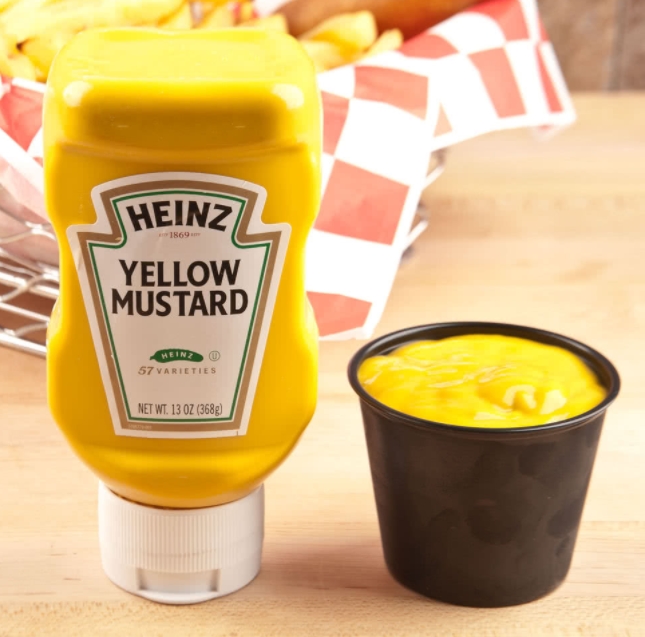
Mustard
Soy Sauce
Does a year and a half sound like a long time for soy sauce to stay edible? Well the fact is that in the pantry it can do just that. You should know that keeping soy sauce for that long might change its taste, although it will still be fine.
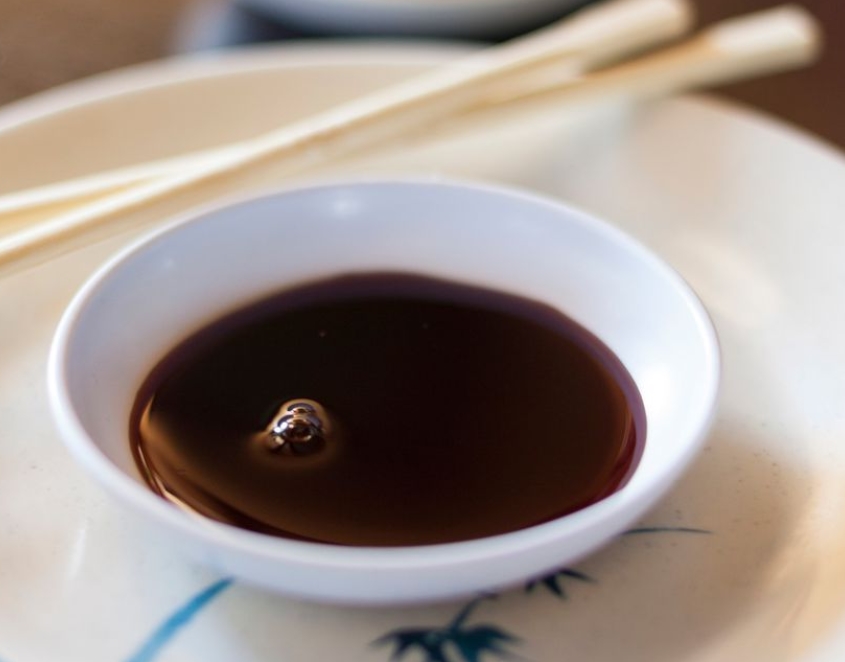
Soy Sauce
Eggplant
Eggplant is kind of like a vampire… kind of. Keep it out of sunlight and at room temperature to ensure that it lasts longer. They are very sensitive to temperature in general, so refrigerators are a “non-no” when it comes to these guys. What’s more is that you should keep them separate from other vegetables and fruits… just like vampires and people.
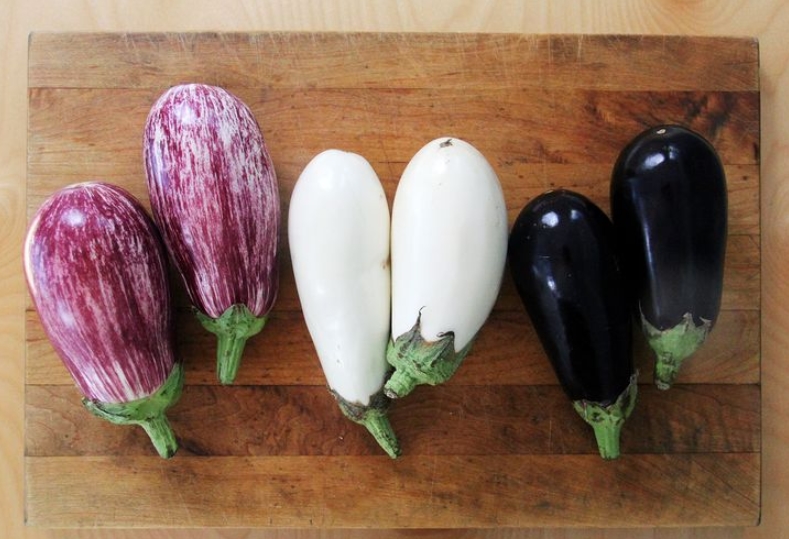
Eggplant
Pineapple
These tropical fruits stand out from others in a very unique way. Once they are harvested, they don’t ripen any more. So if you haven’t cut up that juicy summer fruit, there’s no need to pop it into the fridge. However, if you’re planning on putting it out for guests, the cooler the better!

Pineapple
Papaya
Papaya? Papino? Paw-paw? What do you call it? I call it delicious fruit that is no longer considered seasonal since it’s imported at every time of the year now. Putting this tropical delight in the fridge will slow down the ripening process and it could also give it a watery taste. That watery taste is just… yuck!

Papaya
Sweet Potatoes
Let’s throw in a little bit of science here – when you put sweet potatoes in the fridge, the structure of the cell walls changes. So what does that mean? Well it means that they become hard… even harder than they already are. Your best bet is to put them in a cool place which is dark and well-ventilated.
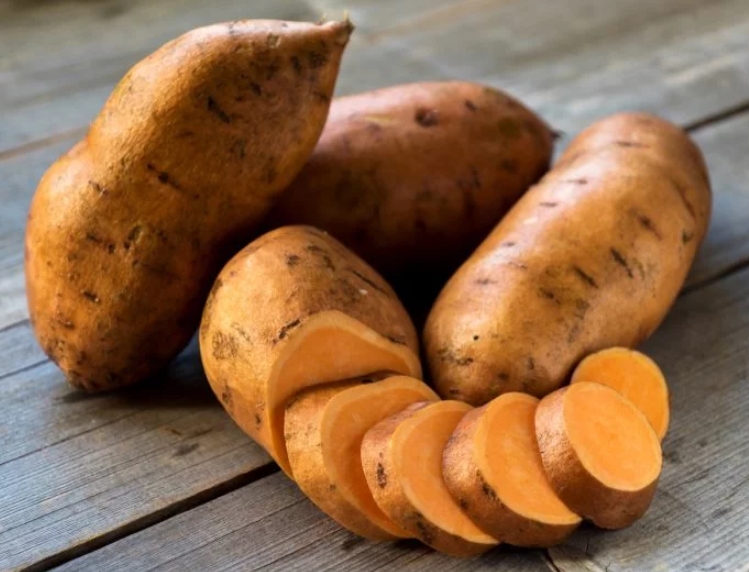
Sweert Potatoes
Dried Beans
There’s a pretty good reason they’re dried – so you don’t have to put them in the fridge, maybe. When it comes to green beans you can leave them outside of the fridge if you’d like to, but only if you plan on using them shortly after buying them.
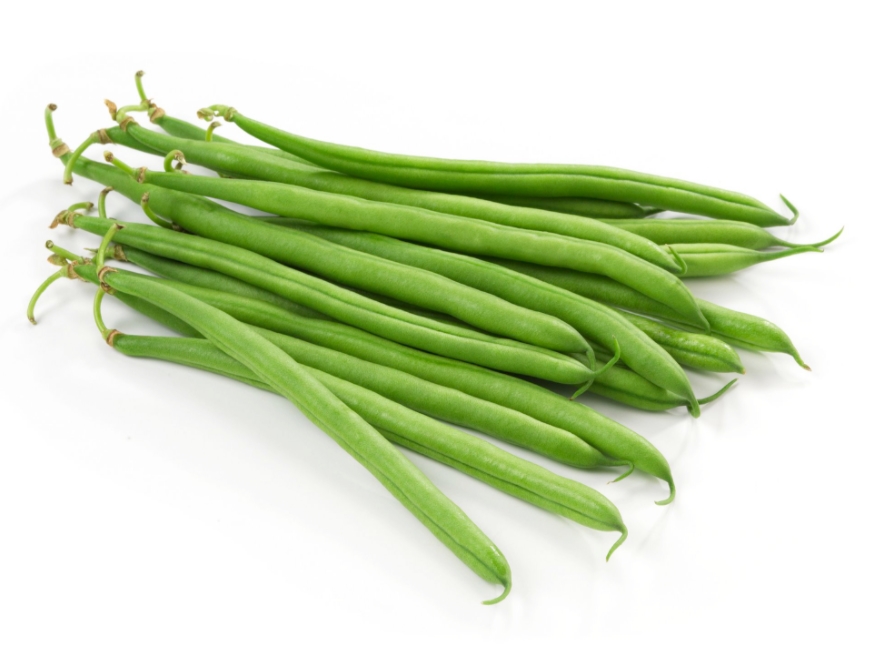
Dried Beans
Donuts
Do you really need to be told that donuts and the fridge are a match made in hell? Listen, I’m a fan of fridge pizza, but donuts? No. They will quickly become stale, not to mention cold treats that no-one will want to eat.

Donuts
Vinegar
Vinegar is so acidic that it can actually preserve itself! Now that is something. The only time you will need to put vinegar in the fridge is if you’ve chopped up some fresh vegetables or herbs and thrown them into the mix, and even then you can wait. So even though they’ve written an expiration date on the vinegar bottle, you really don’t need to pay it any attention.

Vinegar
Salami
Sa-lami tell you something you might not have known already. Most salamis are actually meant to be kept out of the cold because they need to “breathe”. It’s no wonder that backpackers love grabbing a few of these when going on long hikes. If your salami reads that you should keep it in the fridge, then of course you should.
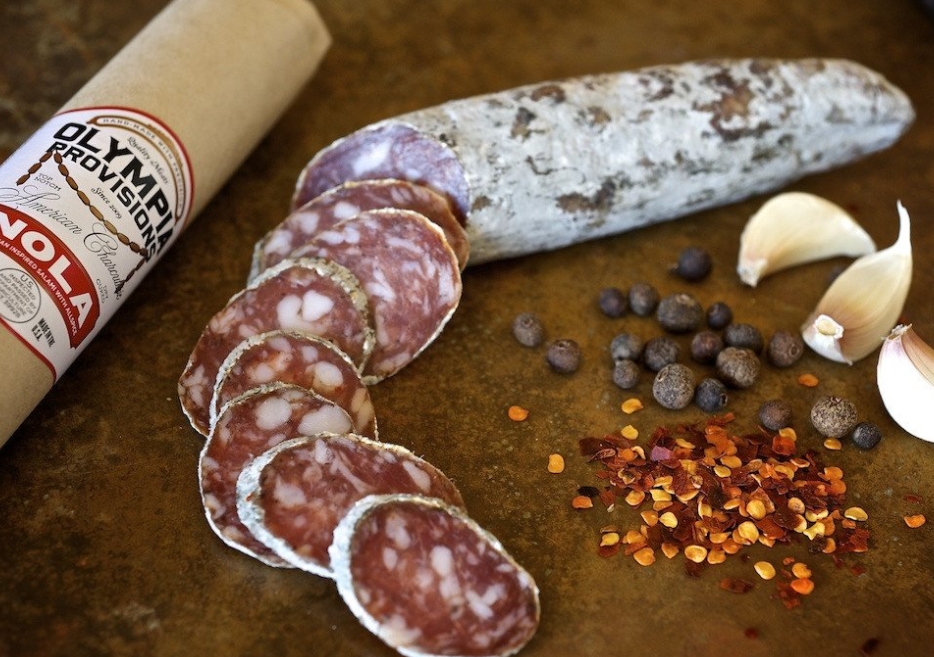
Salami
Aged Cheese
Our first thought is, “But cheese is made from milk, surely it needs to be in the fridge!” But aged cheeses like Gouda, Cheddar and Gruyere are considered to be ‘cured’ cheeses which means they take 6 months to cure, more or less. So these cheeses can be put in places which are cool… nobody wants melted cheese before it’s even seen the oven.
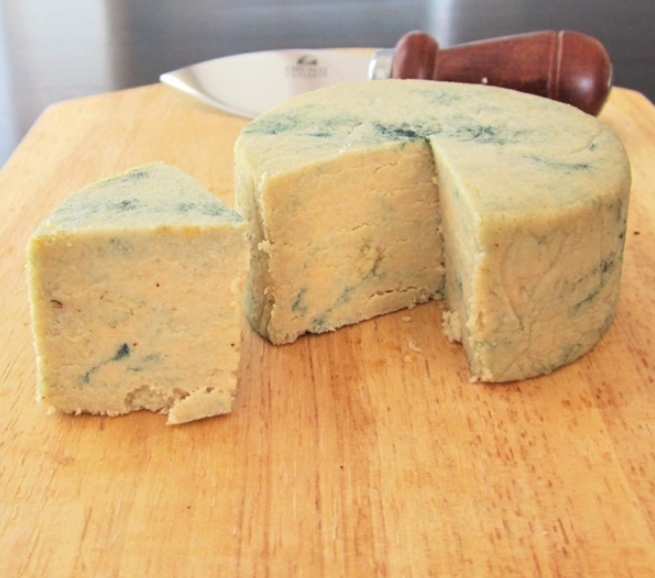
Aged Cheese
Canned Olives
This actually isn’t limited just to olives from a can. Most olive exporters claim that if you keep the olives you bought in the brine they were made it, they should last on the counter. The important thing is just making sure that they aren’t in the sun and that the container is closed.
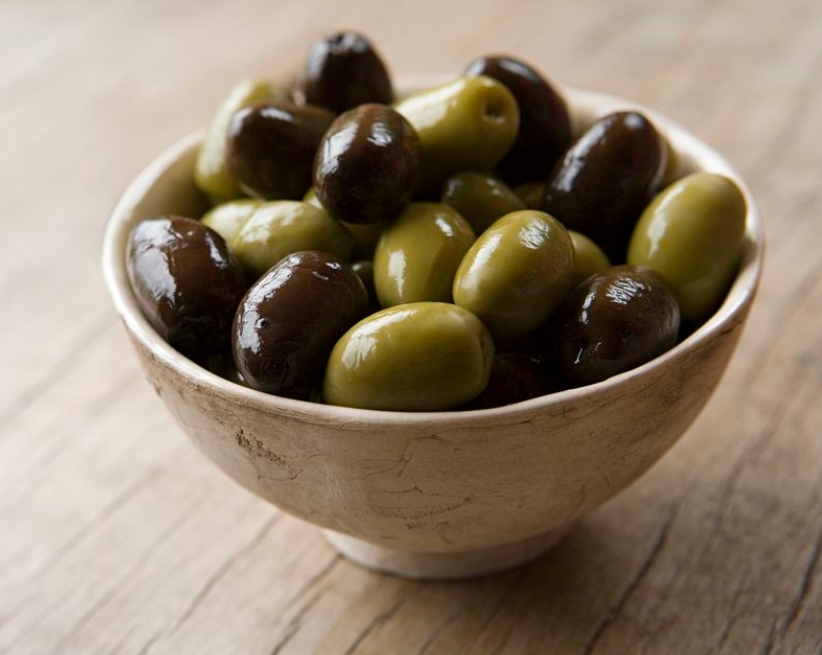
Canned Olives
Beef Jerky
We think that because beef jerky is a meat product, it can’t last outside of the fridge. Since the moisture of the meat is completely drawn out, it can survive “living” on the outside. Making beef jerky can be traced back to Ancient Egypt, and we’re pretty sure they didn’t keep it in their refrigerators.
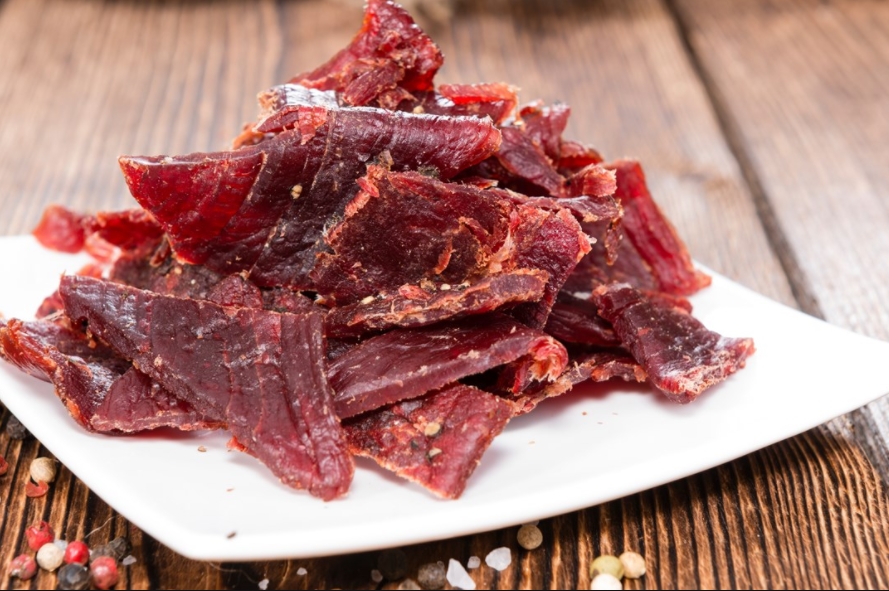
Beef Jerky
Potato Chips
I can’t think of many situations when a bag of potato chips wasn’t eaten until the very last crumb. Then again, I probably can’t think of anyone who would put the bag in the fridge. Guys, let’s just agree that potato chips don’t go in the fridge, cool?
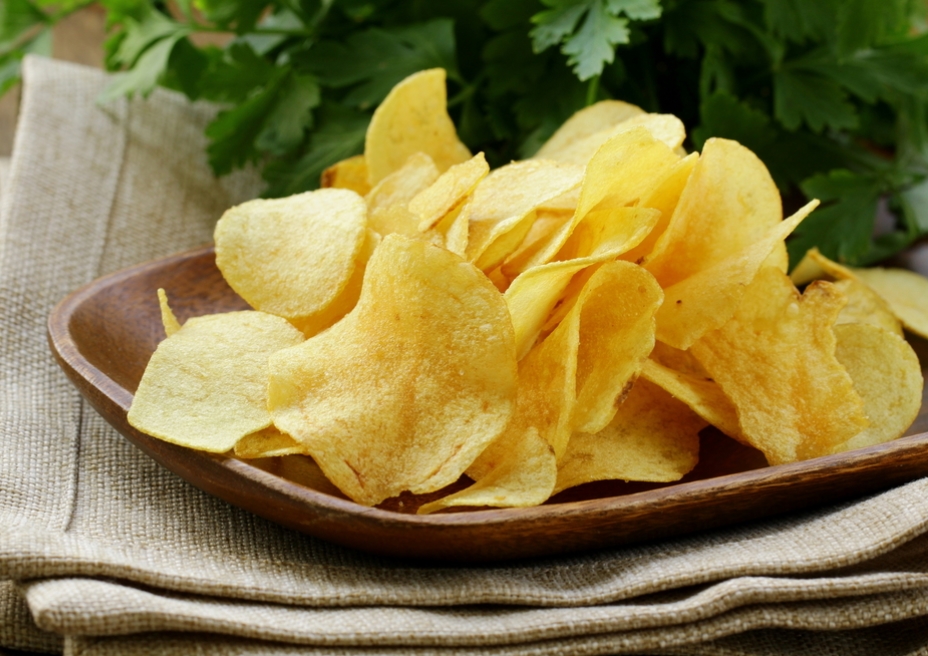
Potato Chips
Crackers
Yes, I have a grandmother who does this. She stores her dry crackers in the fridge and swears that it preserves them… I’m not so convinced. When trying to keep crackers tasty (and not stale) keep them in a tightly sealed bag in the pantry or any other dark place in your kitchen.
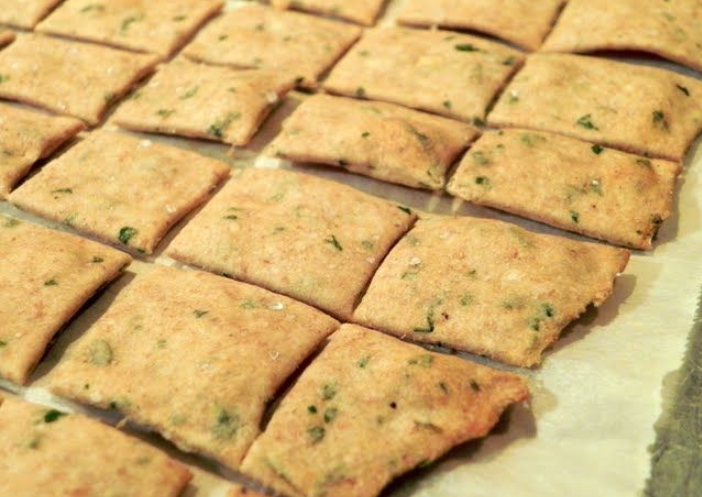
Crackers
Yogurt
I can hear the debaters coming out of the woodwork for this one. Yogurt is made from milk, but it is filled with bacteria (the good ones, relax). If the yogurt is unopened then you can safely keep it out of the refrigerator in a cool place out of the sun. If you want to eat it, perhaps pop it into the fridge so that it is cooler for your pleasure.

Yogurt








